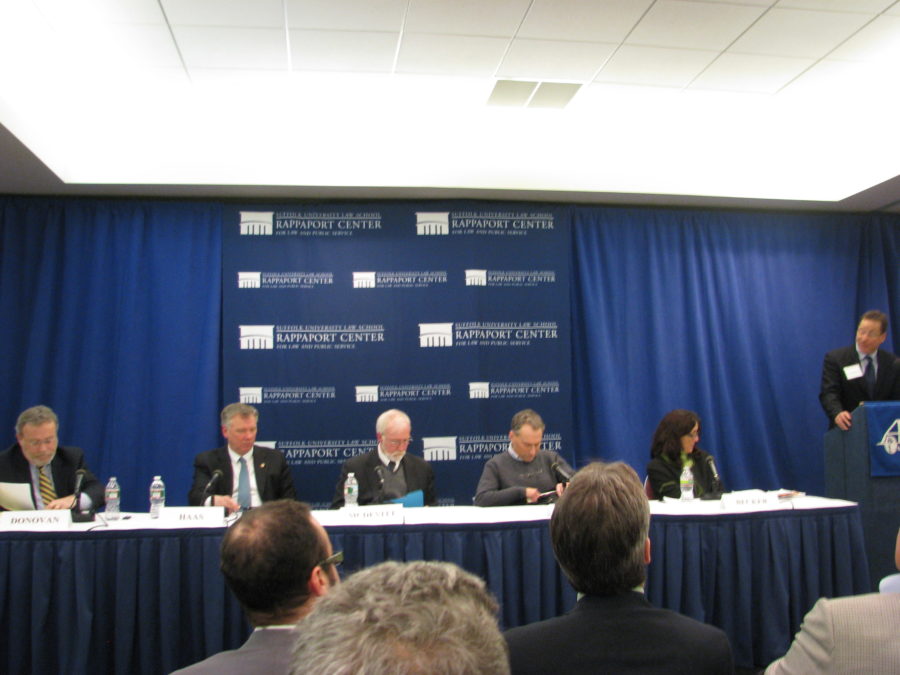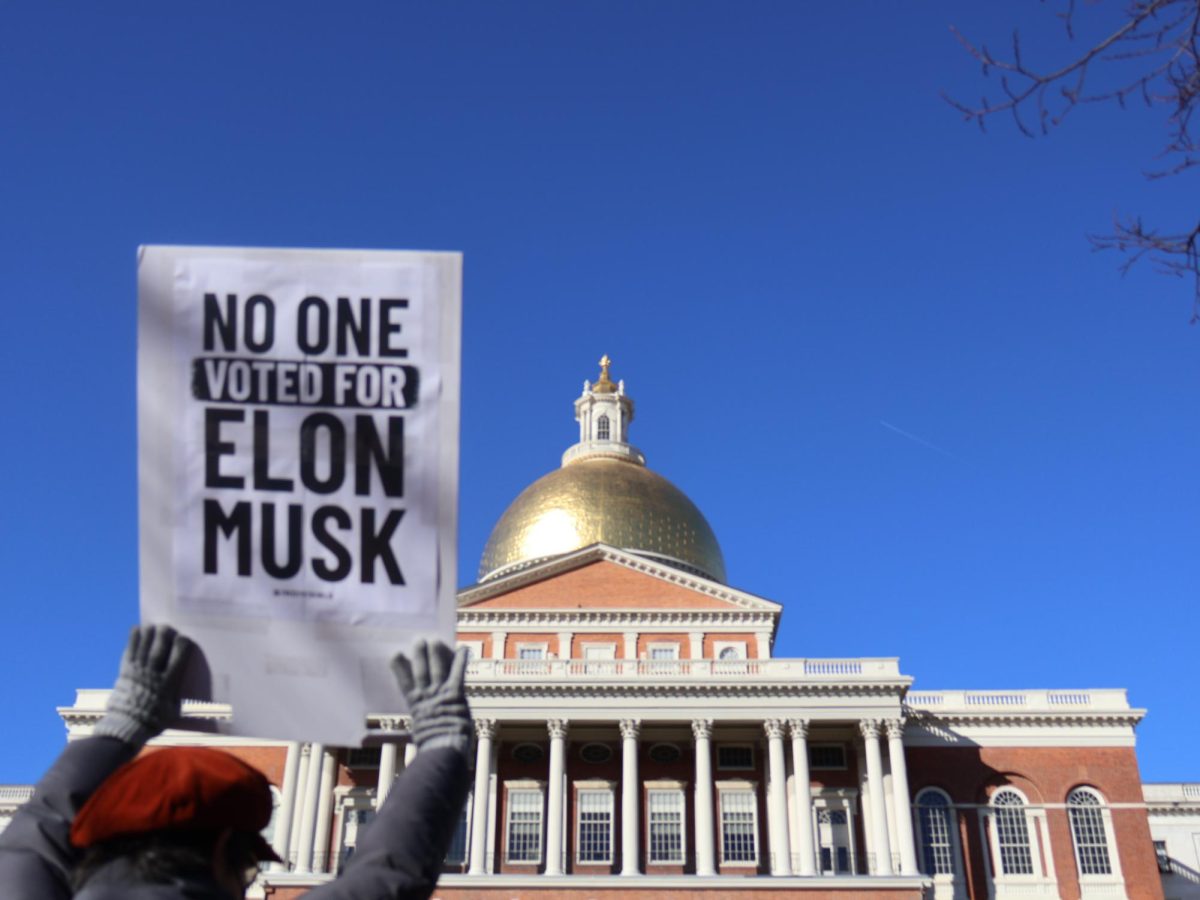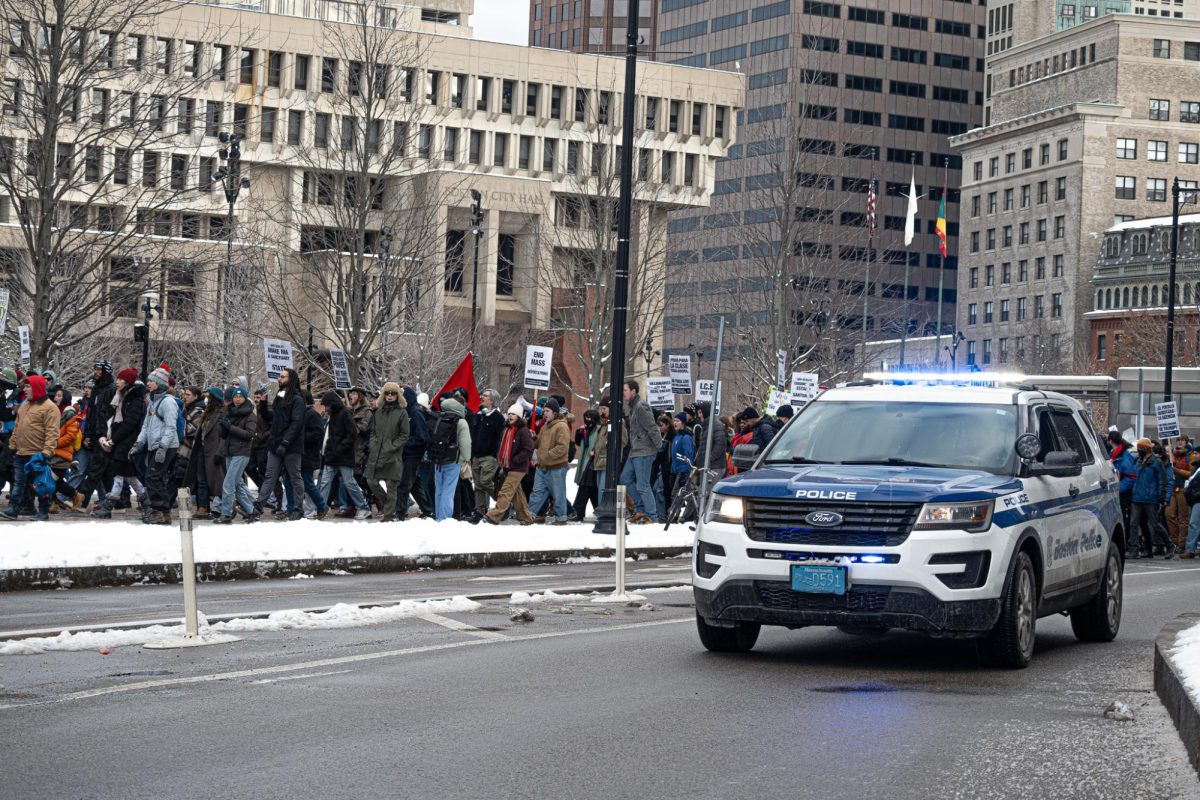Should violence against the homeless be considered a hate crime? Suffolk Law’s Rappaport Center, along with the Anti-Defamation League of New England, hosted a panel discussion last Tuesday exploring whether it is or is not in regards to state and federal law.
This policy discussion comes in the wake of states such as Maryland, Florida, and also Washington D.C. enacting laws including homelessness as a hate crime category. These laws allow for harsher penalties against those committing the crime.
The federal definition of a “homeless person” is someone living in a place not meant for human habitation. One advocacy organization, The National Coalition for the Homeless, has singlehandedly tracked instances of hate crimes against the homeless for the past 11 years. They have found violent attacks on homeless Americans now outnumber all other categories of hate crimes combined. That number has nearly doubled from 2008 to 2009.
Neil Donovan, executive director of the National Coalition for the Homeless (Washington, D.C.), recounted cases he hears “every morning” where homeless individuals are “doused with gasoline, beaten and verbally assaulted, among other things,” while trying to sleep.
Steve Wessler, executive director of the Center for Preventing Hate (Portland, ME), gave characteristics of hate crimes, which include language used during the attack containing words of contempt or disrespect, assertion of someone being homeless, and knowing the perpetrators are not homeless themselves.
One major topic of the discussion was what precedes a hate crime: bias and dehumanization of the targeted group. “They experience frequent degradation,” said Wessler. “In my experience, the only other group that I’ve done work with that have the same level of victimization would be gay teenagers.”
Jack McDevitt, associate dean for research and graduate studies, College of Criminal Justice at Northeastern University’s School of Criminology and Criminal Justice, emphasized the profile of a typical offender.
“They are people who choose violence for thrills and kicks, mainly teenagers. They do it ‘because it’s fun.’ They aren’t member of groups, they’re our kids,” said McDevitt. “They think, ‘no one cares, who’s going to notice?’ We need to send them a message.”
Cambridge Police Commissioner Robert Hass commended his police force and their increasing personal relationship with the homeless population. “It’s not to depersonalize it, but really personalize it, and work with a population that many times has been distrustful, and are not willing to step forward and ask for help, or unable to recount what has happened to them.”
This personal relationship, without condescension, and without “cleaning-up, zero-tolerance policies,” McDevitt stressed, is the biggest concern.
“Reportings [of violence on homeless people] will increase if outreach is there. We need to train law enforcement to take [homelessness] seriously… until we start to say, ‘you’re not a disorder, you’re a victim,’ then we will still have this overarching violence.”
Wessler, amidst a few laughs and sarcasm from the audience, said the best way to lower the homeless rate, and, as a result, violence against them, would be to house them. “Permanent housing for homeless people would be the biggest help. It is less expensive for housing than using resources against the violence.”
Porsha Olayiwola, an attendee as well as a member of the National Coalition for the Homeless said the panel would have been better if there was a homeless person in attendance. She also noted the need for more housing talks. “I feel like the fight is going the wrong way.”
“If we leave anyone behind,” Donovan said, “we will all suffer.”













